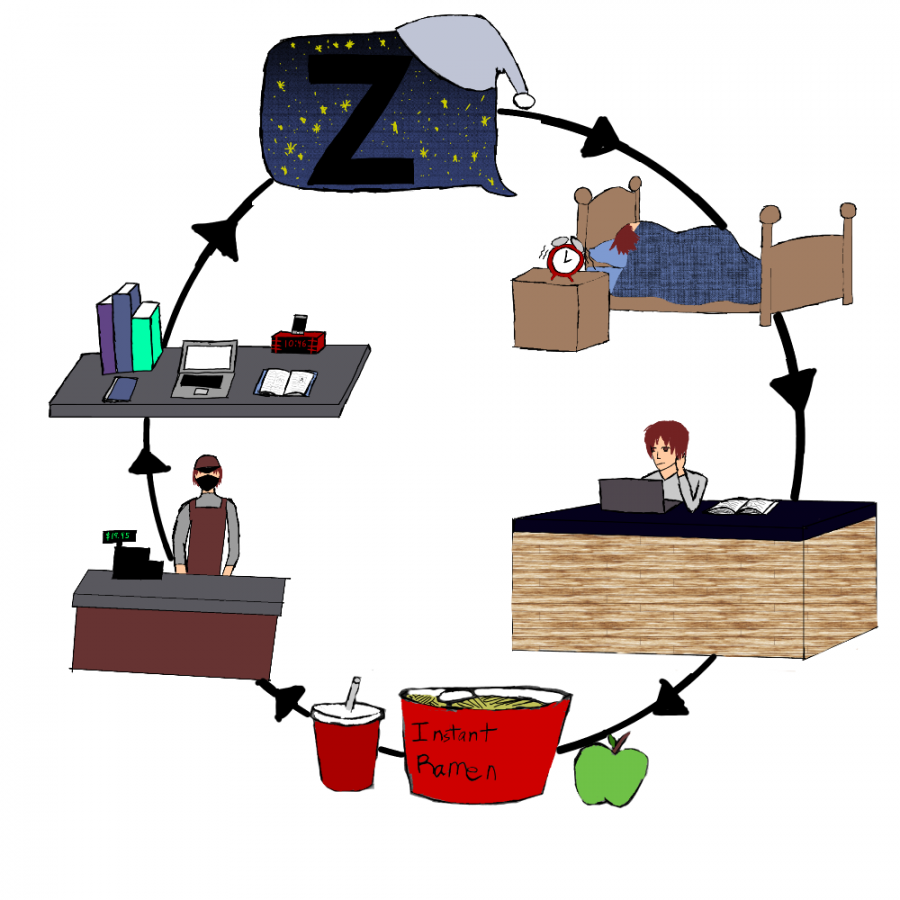In just a little over a week, Abraham Bartholomew has a paper worth several hundred points due. Furiously working and shredding the keyboard with his frantic pounding, he attempts to enter a website to complete his research paper. An error screen pops up instead of the story; the page is being blocked by the Wi-Fi filter, a story rather common among students.
The federal government has made it a law for all schools to have a filter to protect students from seeing things the legislators believe should not be seen. In the Greater Albany Public School district, the district office controls the software that filters through new sites that are being made and old ones that were already there. The software mainly looks for keywords, as in anything that has to do with body parts, drugs, and violence, and it blocks the content. Sometimes, those sites we need for school projects or research are blocked from our use.
Jean Gritter, school librarian, explained exactly how the software filter works.
“There is no easy way to say ‘Oh, these are actually really educational ones, and these are gross and we don’t want to look at them.”
The software does not allow the slightest things past, even if students need them. There is a process to whitelist the sites, but it is only available to the teachers. If a site is useful and the teacher believes that students will need it, they can go through the process that will make the site available to the whole school. The only problem is that only that exact link will be accessible; any links that are on that page may be blocked.
The whitelist form goes through Informational Technology to make sure that it is okay to be whitelisted. It rarely gets denied.
Due to all the sites that are blocked, Health class in particular is afflicted by the filter. Health teacher Jennifer Bornhiemer shares that 40 percent of her assignments require internet access. Because of the topics that Health covers, it becomes difficult to access sites that have this information since it falls into the category of the blocked sites.
“Anything that has anything to do with a body part that is associated with a reproductive system will be blocked.,” Bornhiemer said. Thus, health topics like breast cancer will usually get blocked along with anything that has to do with marijuana. When it comes to drug research, Bornhiemer will sometimes have to tell her students that their information will need to be researched at home since it can’t be accessed at school.
Bornhiemer also has an activity that runs into problems most of the time: the question box. She will allow students to anonymously put their questions in a box to be answered. Answering the questions is hard.
“It’s just difficult to find appropriate answers to answer those questions.”
Even she has to wait until she gets home to answer those questions because they can be deemed too inappropriate to those in charge of deciding what is appropriate and what isn’t, and thus cannot research those questions at school.
Junior Abraham Bartholomew shared that he has been blocked by the filter when he has needed to do research. “Last year for Honors [Sophomore] English, I was writing this big research paper,” said Bartholomew, “but the problem was if I tried to look at most sources that were even a little outside the library’s research catalogue, I could often get blocked even for sources that were credible and scholarly.”
According to Bartholomew, the problem for him was the fact that when he tried to use credible, informational sources, they were blocked at school, and ergo then could not accomplish his work.
“I feel like there should be a system where [the students] can easily request access to websites,” said Bartholomew. “Students would be able to say ‘hey, this website shouldn’t be blocked,’ and we can have a fast, speedy process where someone looks at it and says ‘hey, this shouldn’t be blocked.’”
“The problem is, teachers say ‘oh, don’t use sources like Wikipedia,’ yet I can access Wikipedia 24/7, but I can’t use the stellar sources I find at home.”


